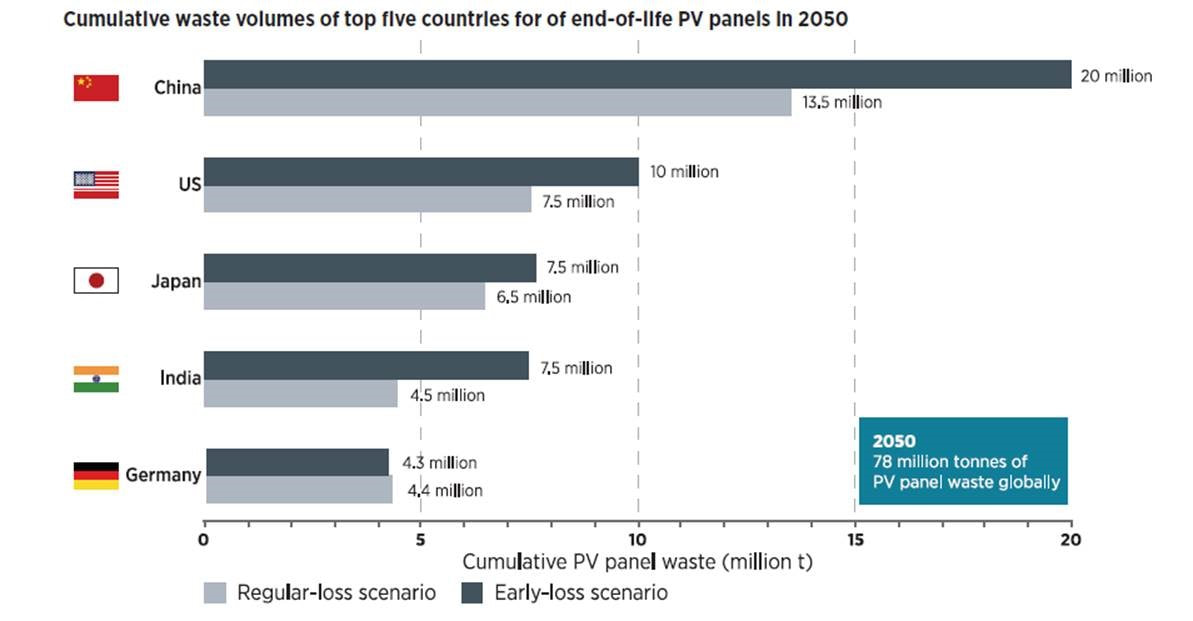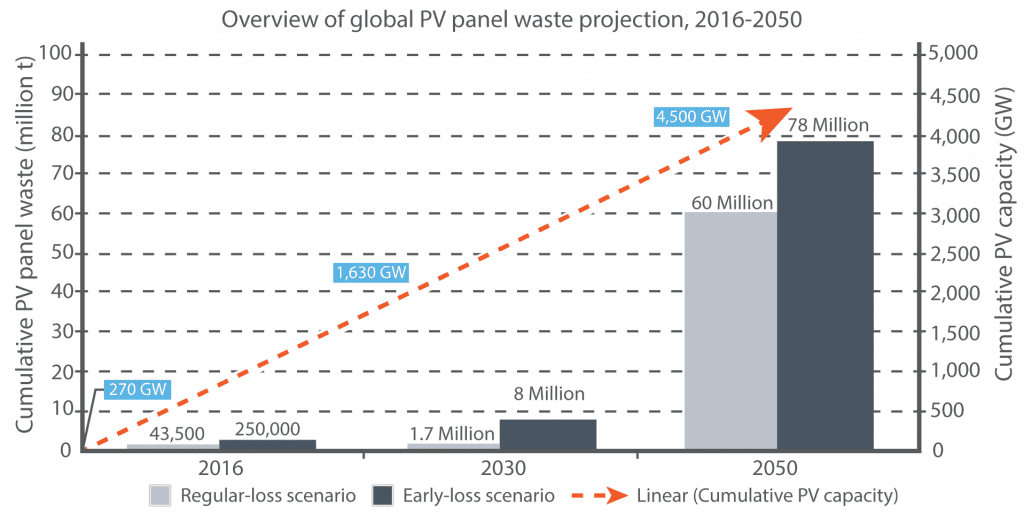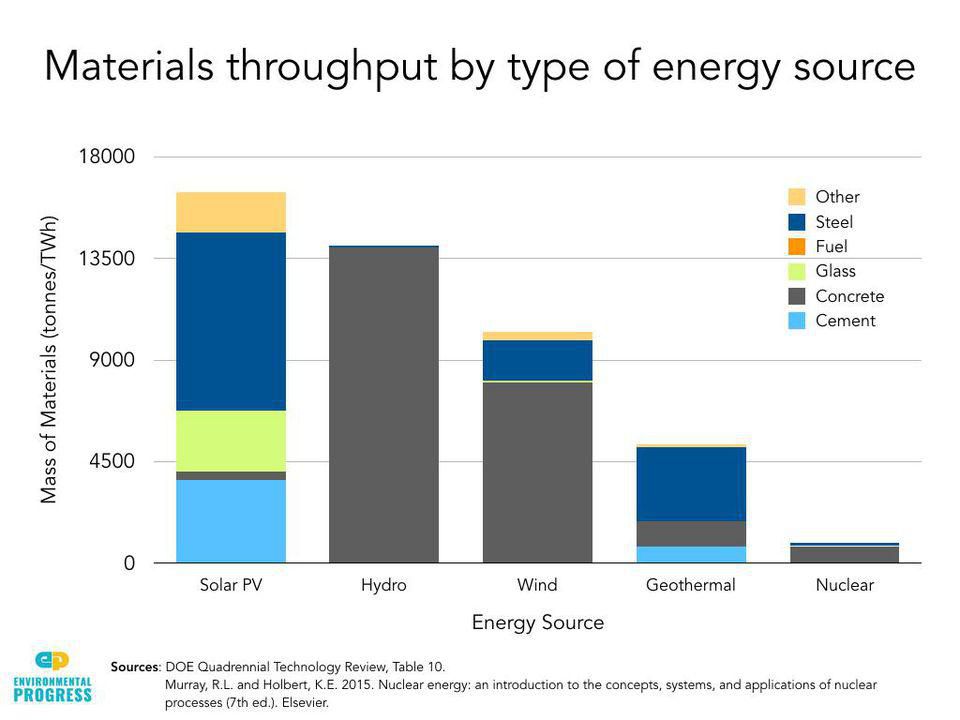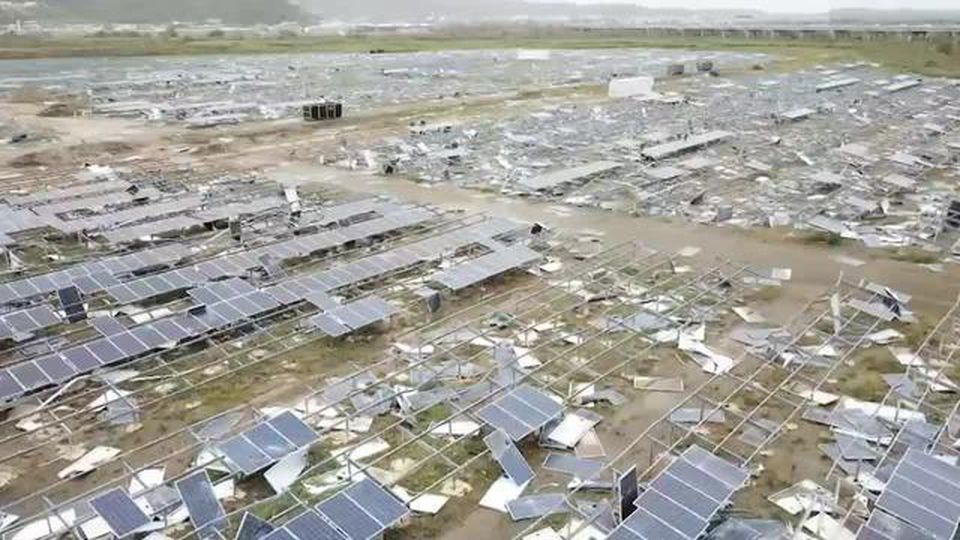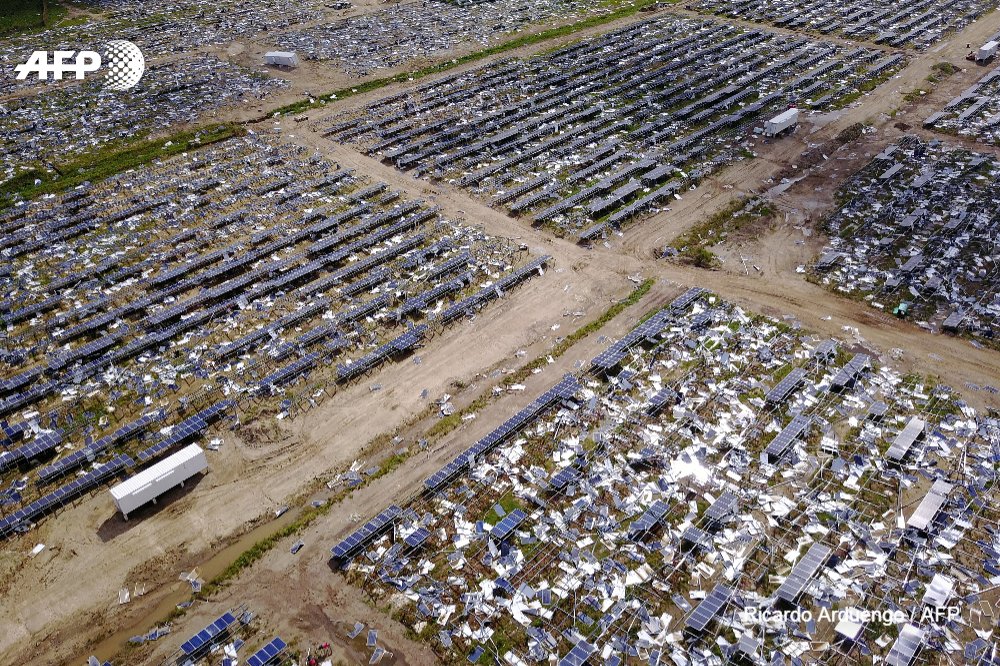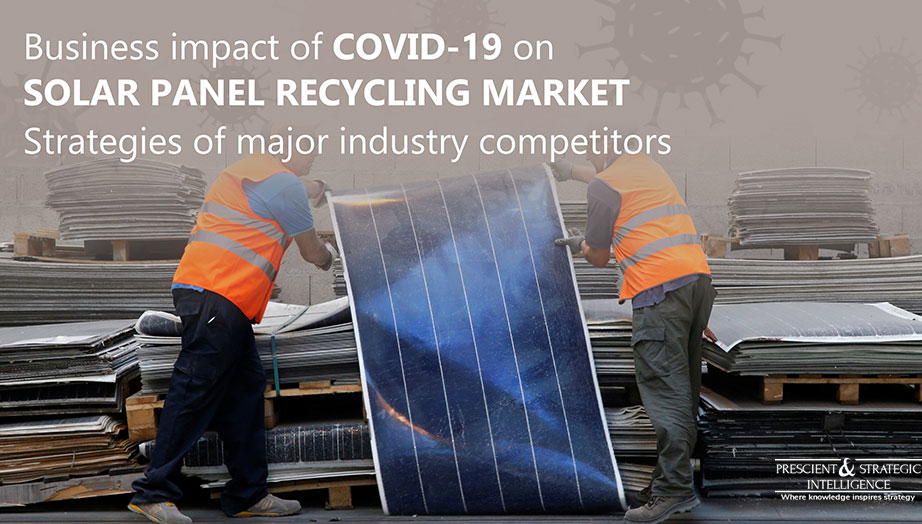19.02.2021
Solar Panel Waste: The Dark Side of Clean Energy
Tons of solar panels installed in the early 2000s are reaching the end of their lifecycles, posing a serious problem for the industry to contend with. Current solar panel disposal practices are far from being environmentally friendly. Solar panels have an operating lifespan of around 20 to 30 years. As society continues to adopt solar power, this problem may worsen in the coming decades, with almost 80 million tons of solar waste projected by 2050. Because it's not easy to properly dispose of the toxic metals inside the solar cells — and there's an overall lack of oversight — it is often cheaper to discard them in landfills or send them to developing countries. As solar panels sit in dumps, the toxic metals they contain can leech out into the environment and possibly pose a public health hazard if they get into the groundwater supply. Most solar recycling plants simply remove the valuable silver and copper from the cells and then recycle the contaminated glass and plastic casing by burning them in cement ovens. Since the process is costly and time-consuming, it’s more convenient for solar companies to drop the dead panels into landfills or export them to third-world countries. Studies have shown the heavy metals in solar panels — namely lead and cadmium -- can leach out of the cells and get into groundwater, as well as affect plants. These metals also have a record for detrimental effects on human health. Lead is commonly known to impair brain development in children, and cadmium is a carcinogen. Credit: WASTE ED
Poverty deprives people of adequate education, health care and of life's most basic necessities- safe living conditions (including clean air and clean drinking water) and an adequate food supply. The developed (industrialized) countries today account for roughly 20 percent of the world's population but control about 80 percent of the world's wealth.
Poverty and pollution seem to operate in a vicious cycle that, so far, has been hard to break. Even in the developed nations, the gap between the rich and the poor is evident in their respective social and environmental conditions.
Poverty and pollution seem to operate in a vicious cycle that, so far, has been hard to break. Even in the developed nations, the gap between the rich and the poor is evident in their respective social and environmental conditions.
